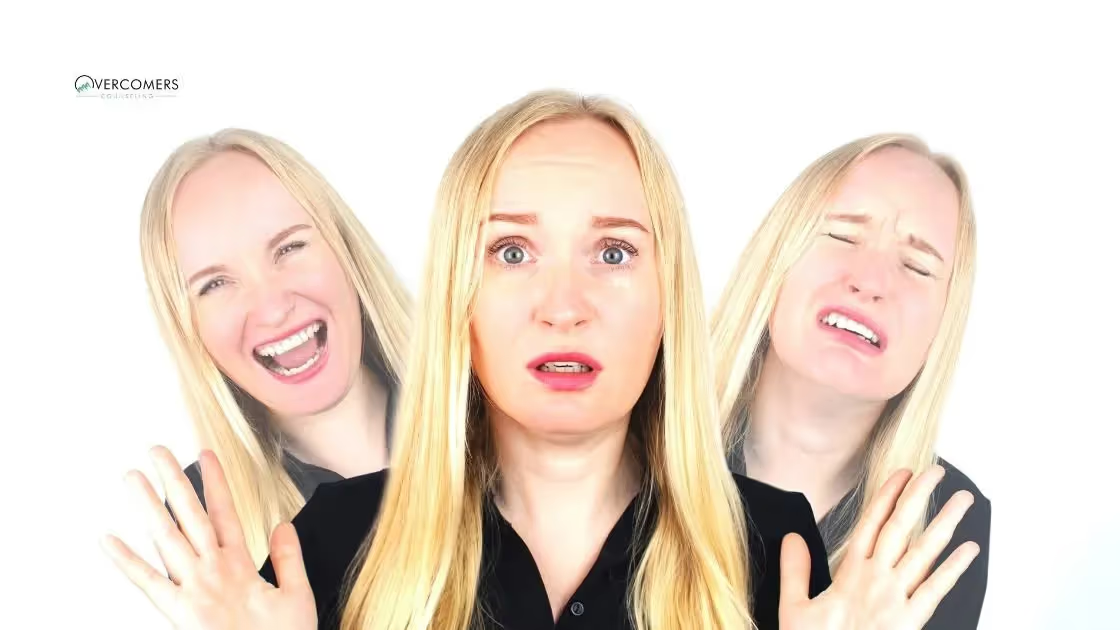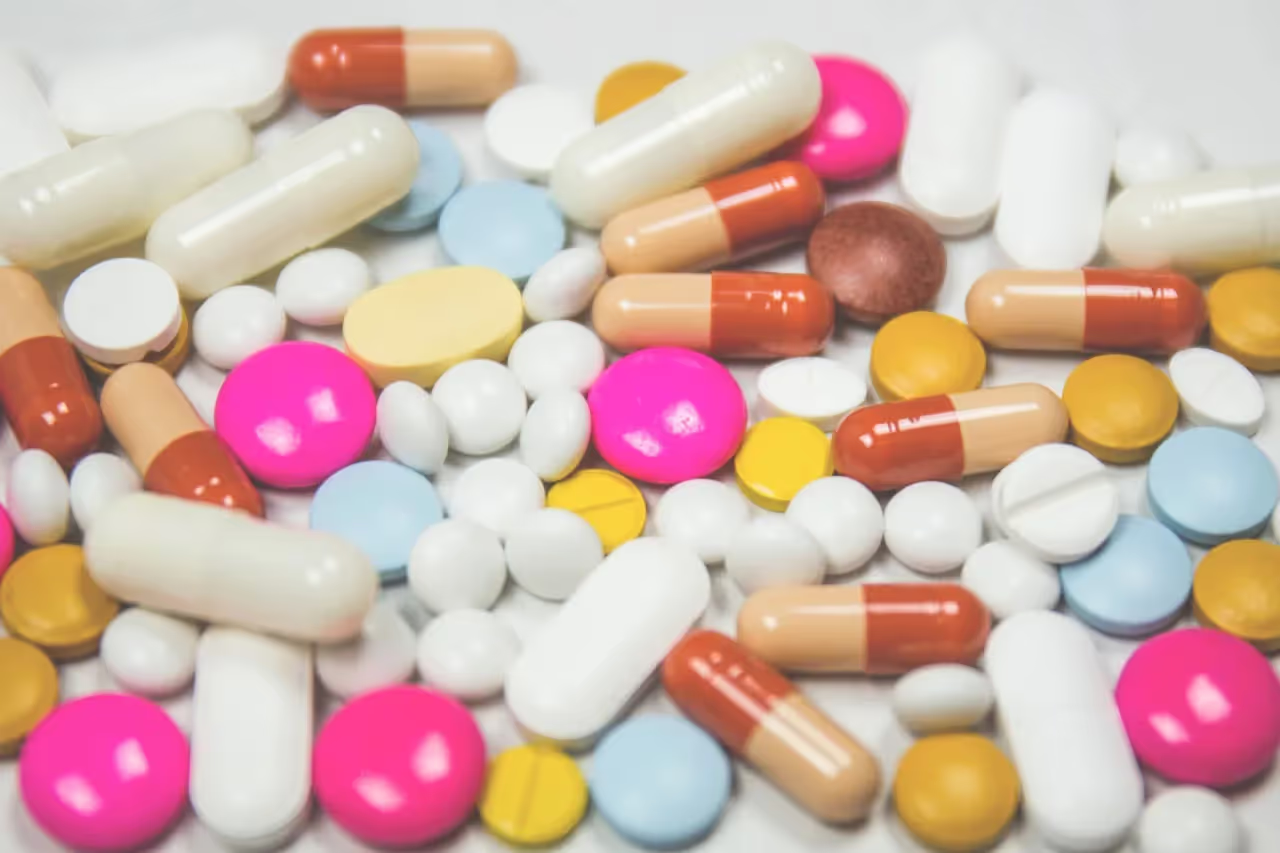Have you recently noticed some emotional ups and downs? Perhaps you often feel depressed and can't quite understand why? After visiting your doctor, you...

Have you recently noticed some emotional ups and downs? Perhaps you often feel depressed and can't quite understand why? After visiting your doctor, you were diagnosed with bipolar affective disorder? Don't worry, we've got you covered. After reading this post, you'll learn about bipolar affective disorder, the causes of your recent mood swings, and the proper steps needed to manage your depression, including bipolar disorder symptoms, the concept of a major depressive episode, and anxiety disorders. Mental disorders, mood disorders, and other related disorders can be helped. You'll also get some ideas on how to manage your depression.
Let's get started.
Definition
Bipolar Disorder (Bipolar I) involves full manic episodes, whereas Bipolar Affective Disorder (Bipolar II) involves hypomanic episodes, which are less severe.
Symptoms of Bipolar Disorder
Common symptoms include manic or hypomanic episodes, major depressive episodes, and shifts in mood and behavior.
Types of Bipolar Disorder
There are four types: Bipolar I, Bipolar II, Cyclothymic Disorder, and Other Types caused by substances like alcohol or drugs.
Symptoms of Mania
Increased energy, emotional behavior, rapid talking, sociability, racing thoughts, high self-esteem, and distractibility.
Impact on Life
Affects work, behavior, and relationships. People with bipolar disorder often struggle with maintaining stability in daily life.
Treatment
Both medical and psychological treatments are essential for managing symptoms and maintaining a balanced life.
Misconceptions
Bipolar disorders are mental health conditions, not spiritual problems, requiring appropriate medical treatment.
In layman's terms, bipolar affective disorder popularly known as manic depression is a mental illness that mostly affects and causes intense shifts in moods. People who suffer from this sickness witness mood swings, and changings in behavior and may often experience mania and depression. It's a disorder that mostly affects your thoughts, behaviors, etc. For instance, you might be sad this minute, and then within the next minute, you become angry. In addition, know that bipolar is not a spiritual problem as some people mistake it sometimes, but it's a mental disorder that will require you to take the right medication to be well again.
There are mostly 4 types of bipolar disorder.
Here is the list below:
This type of bipolar disorder is represented by manic episodes and can come with or without depression symptoms. For a person who has this kind of bipolar affective disorder, the manic episodes can last for a week or more though depending on how bad your case may be. And you may as well experience some kind of depression that might last for weeks.
Bipolar 2 disorder comprises both manic and depressive episodes. In this kind of bipolar affective disorder, the mania you will experience can be slightly more severe than that of bipolar 1 also known as hypomania. Then, you will experience depressive episodes either before or after you've had a manic break.
This is a kind of bipolar affective disorder, where you will experience both manic and depressive episodes for like a year or more than that. Though in this disorder, the mania and depression are usually less severe than that of bipolar 1 or bipolar 2.
In this case, you may experience symptoms that don't fit into the other 3 above bipolar types. If this is your case right now, you're considered to be a type 4 bipolar disorder "Other types" are mostly caused by alcohol, drugs, etc.

Though, the causes of bipolar affective disorder have not been scientifically proven. But then, according to researchers, it can be caused by
Below are the things they found to cause bipolar affective disorder. Genetic causes include:
Environmental causes include:
Bipolar affective disorder symptoms can sometimes be hard to deal with in your everyday life. It will have a bad effect on your work, your behavior, and your relationship with people around you. However, here are the different categories of symptoms you might experience if you have bipolar disorder: for mania symptoms.
10 symptoms of mania are as follows:
This is more like mania, but in this case, you will experience lower symptoms. For depressive symptoms.
The 6 symptoms of depression include:
This is also another symptom of bipolar affective disorder.
Its symptoms can include:
In addition, Psychotic symptoms in bipolar disorder can reveal your mood. For instance, in a situation you have a manic episode, you may believe that you have some kind of special powers whereas you don't.
The difference between these two mainly depends on the aspect of the manic episode affected by each one. It means, that a person with bipolar disorder (bipolar 1) will feel a full manic episode, whereas a person with bipolar affective disorder (bipolar 2) feels only the hypomanic episode - less serious than the latter.
Well, the bipolar affective disorder can be treated with both medical and psychological treatments.

You will be given a psychological medication that is specially designed for bipolar affective disorder. You could be given either individual or group therapy. Although, this treatment aims to help stop you from becoming unhealthy again. Hence, a talking therapist can be of help in this case. The therapist should help you to:
Bipolar affective disorder is a serious mental illness that is mostly characterized by mood changes, coupled with both mania and depression. It's a life-long and often recurring severe mental sickness that might need long-term support to help manage your condition. However, it can be controlled and managed if you see your doctor in time.
https://www.healthline.com/health/bipolar-disorder/bipolar-1-vs-bipolar-2
https://pubmed.ncbi.nlm.nih.gov/32644424/
https://cmhadurham.ca/mental-health/bipolar-affective-disorder/#:~:text=Bipolar%20means%20sharing%20two%20poles,low%20pole%20experienced%20as%20depression.
https://www.mayoclinic.org/diseases-conditions/bipolar-disorder/symptoms-causes/syc-20355955
The duration of depression counseling varies for each individual, depending on the severity of their depression and their progress in therapy. Our therapists will regularly assess your progress and adjust your treatment plan as needed.
There are many helpful resources available, including support groups, online forums, books and websites dedicated to mental health and wellness. Connecting with other people struggling with the same issue can be especially beneficial. Additionally, talking to a trusted friend or family member can provide much-needed social support during difficult times.
Yes! There are many effective natural remedies that may be beneficial in managing depressive symptoms, such as participating in regular physical activity, changing your diet, getting adequate sleep, practicing relaxation techniques like yoga or meditation, journaling about your feelings/thoughts/emotions, seeking out social activities/support groups with other individuals struggling with similar issues
If your symptoms of depression have been persistent and interfere with your daily life, it's important to seek help from a mental health professional. It's also a good idea to get medical advice if you experience any thoughts of self-harm or suicide.
Therapy provides many benefits for people battling depression. Research has shown that cognitive-behavioral therapy (CBT) is particularly effective in managing depressive symptoms. In addition, therapy can teach healthy coping skills and provide emotional support during difficult times. It may also be used as part of a comprehensive treatment plan which includes medication as well as lifestyle changes such as regular exercise and improved nutrition.
Addressing depression is crucial because it can significantly impact your quality of life, overall well-being, and ability to function in daily activities. Left untreated, depression can lead to more severe mental health issues, relationship problems, and physical health complications.